Research Article
Issue Reviewers
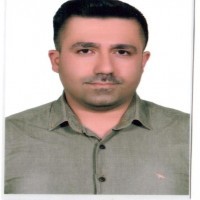
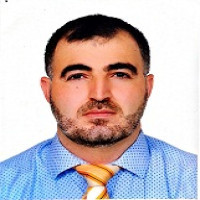

Doğum Tarihi: 04/ 02/ 1971
Doğum Yeri : Düzce
İlk Üniversite : Hacettepe Üniversitesi İngilizce Öğretmenliği bölümü
Mezuniyet Tarihi: 1994
Çalıştığı Kurum : Muradiye Vakfı okullarında 1994- 2006 İngilizce öğretmenliği
İkinci Üniversite : Ankara Üniversitesi, Dil ve Tarih-Coğrafya Fakültesi, Arap Dili Ve
Edebiyatı
Mezuniyet Tarihi: 2016.
Mezuniyet Ortalaması: 4: 00
Yüksek Lisans : Ankara Üniversitesi, İlahiyat Fak, Temel İslam Bilimleri, Arap Dili ve
Belagatı
Tez Konusu: Modern Arap Şiirinde Dîvan Ekolü’nün Yeri.
Tez Danışmanı: Prof. Dr. Ömer Acar.
Mezuniyet Tarihi: 2018 Ocak
Doktora : Ankara Üniversitesi, Dil ve Tarih-Coğrafya Fakültesi, Arap Dili Ve Edebiyatı
Tez Konusu : ‘‘Radvâ Âşûr’un es-Sulâsiyyetu Gırnâta ve Muhiddîn İzzet Kandûr’un Kavkas
Trilogy isimli Tarihi Romanlarının Tematik Karşılaştırılması’’
Tez Danışmanı: Doç. Dr. Derya Adalar Subaşı
Mezuniyet Tarihi: 01/03/2024
Makaleler:
1. SUUDİ ARABİSTAN’DA İLK KADIN ROMAN YAZARI SEMİRA KAŞIKÇI’NIN VEDDA’TU ÂMÂLÎ İSİMLİ ROMANININ TAHLİLİ
(2021, Doğu Dilleri Dergisi)
2. MUSTAFA LUTFÎ el-MANFALÛTÎ’NİN el-YETÎM ADLI HİKÂYESİNİN MELANKOLİK UNSURLAR ÇERÇEVESİNDE TAHLİLİ
(2024 , Bingöl Araştırmaları Dergisi)
Bildiriler:
1. DÎVÂN EKOLÜ ŞAİRLERİNDE PERCY BYSSHE SHELLEY ETKİSİ
Bilsel Uluslararası II. Harput Bilimsel Araştırmalar Kongresi
2. MISIR’I EN İYİ MISIR ANLATIR
Korykos Bilimsel Araştırmalar Kongresi
3. DİLBİLİMCİLERİN GÖSTERGENİN NEDENSİZLİĞİ ÜZERİNDE UZLAŞISI
Truva Bilimsel Araştırmalar Kongresi
HAKEMLİK
Nüsha Dergisi 2024 Temmuz Sayısı

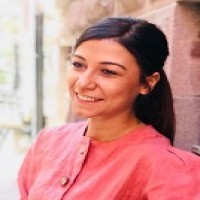
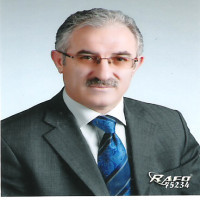


Ankara




Turgay Şafak lisansını İstanbul Üniversitesi Edebiyat Fakültesi Kütüphanecilik bölümünde tamamlamıştır. Yüksek Lisans ve Doktora eğitimini Tahran Üniversitesi Edebiyat ve Beşeri Bilimler Fakültesi Fars Dili ve Edebiyatı Bölümünde yapmıştır. Boğaziçi ve İstanbul Şehir Üniversitelerinde Farsça dersleri vermiştir. 2016-2018 yılları arasında Tahran’da Yunus Emre Enstitüsü müdürü olarak görev yapmıştır. Hâlen İstanbul Medeniyet Üniversitesi Doğu Dilleri ve Edebiyatları Bölümü Fars Dili ve Edebiyatı Anabilim Dalında öğretim üyesidir.
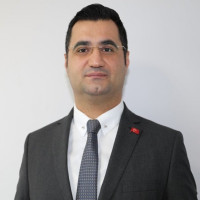
2013-2018 yılları arasında Tahran Yunus Emre Enstitüsü ve Kabil Yunus Emre Enstitüsünde görev yapan Umut Başar, Allameh Tabatabai Üniversitesi Türkoloji Bölümü, Kabil Devlet Üniversitesi Türkoloji Bölümü ve Üstat Şehit Rabbani Eğitim Üniversitesi Türk Dili ve Edebiyatı Bölümünde muhtelif dersler vermiştir. 2019 yılında doktora derecesini Hacettepe Üniversitesi Türkiyat Araştırmaları Enstitüsünden almıştır. İran Türkolojisi ve İslam devrimi sonrasında İran’daki toplumsal hareketlerle ilgilenmektedir. 2019 yılında Türkiye Yazarlar Birliği (TYB) tarafından kendisine tercüme dalında ödül verilmiştir. Başar’ın telif ve tercüme olmak üzere birçok akademik çalışması bulunmaktadır. Başar, ileri seviyede Farsça ve İngilizce bilmektedir.
1965 yılında Konya’nın Sarayönü ilçesine bağlı Ladik kasabasında dünyaya geldi. İlk ve orta öğrenimini Ladik’te, lise tahsilini Sarayönü ilçesinde tamamladı. 1988’de Atatürk Üniversitesi Fen-Edebiyat Fakültesi Doğu Dilleri ve Edebiyatları Bölümü Fars Dili ve Edebiyatı Anabilim Dalı’ndan mezun oldu. 1989-1990 yılları arasında vatanî görevini yaptı. 1990’da mezun olduğu bölümde Araştırma görevlisi olarak göreve başladı. 1992 yılında Atatürk Üniversitesi Sosyal Bilimler Enstitüsü’ne bağlı olarak, Sultan Ahmed Celâyir’in Kitabu’l-garbiyyât adlı Divanı isimli çalışma ile yüksek lisansını; 1996’da yine aynı Enstitü’ye bağlı olarak Sultan Veled ve Rebabnâme adlı çalışma ile doktorasını tamamladı. 1997’de yardımcı doçent, 2000 yılında da doçent oldu. 06.11.2004-25.05.2010 tarihleri arasında Fars Dili ve Edebiyatı Ana Bilim Dalı Başkanlığı görevinde bulundu. 07.04.2006’da Profesör oldu. 23.11.2012-25.11.2015 yılları arasında Atatürk Üniversitesi Edebiyat Fakültesi’nde dekan yardımcısı; 19.08.2016-03.11.2020 yılları arasında ise aynı fakültede dekan olarak görev yaptı. Evli ve dört çocuk babasıdır.


09/08/1963 Adapazarı doğumludur. Orta öğretimini Adapazarı’nda tamamladı. 1983-1984 eğitim-öğretim döneminde Ankara Üniversitesi Dil ve Tarih-Coğrafya Fakültesi Doğu Dilleri ve Edebiyatları Bölümü Fars Dili ve Edebiyatı Anabilim Dalı’nda filoloji eğitimine başladı ve adı geçen bölümden 1987 yılında mezun oldu. Ankara Üniversitesi Sosyal Bilimler Enstitüsü programına bağlı olarak Mayıs 1990 tarihinde Yüksek Lisansını tamamladı. Mart 1989-Ekim 1990 tarihleri arasında Ankara Üniversitesi Türkçe Öğretim Merkezi (TÖMER)’nde sözleşmeli okutman olarak görev yaptı. Ekim 1990’da aynı enstitüde Doktora programına katıldı. 31 Aralık 1991 tarihinde Selçuk Üniversitesi Fen-Edebiyat Fakültesi Doğu Dilleri ve Edebiyatları Fars Dili ve Edebiyatı Anabilim Dalı’na araştırma görevlisi olarak atandı. 20 Şubat 1997’de Edebiyat Doktoru unvanını aldı. 12.04.1999 tarihinde Selçuk Üniversitesi Fen-Edebiyat Fakültesi Doğu Dilleri ve Edebiyatları Bölümü Fars Dili ve Edebiyatı Anabilim Dalı yardımcı doçent kadrosuna atandı. 18.09.2006 tarihinde Fars Dili ve Edebiyatı Anabilim Dalı başkanlığına atandı. 14.12.2007 tarihinde Doçent unvanını aldı. 26.08.2010 tarihinde Kırıkkale Üniversitesi Fen-Edebiyat Fakültesi Doğu Dilleri ve Edebiyatları Bölümü Fars Dili ve Edebiyatı Anabilim Dalı Doçentlik kadrosuna, 05.10.2010 tarihinde Bölüm Başkanlığı görevine; 08.03.2013 tarihinde aynı üniversitede profesörlük kadrosuna atandı. 11.02.2014-05.10.2014 tarihleri arasında Doğu Dilleri ve Edebiyatları Bölüm başkanlığını; 14.02.2014 tarihinden itibaren Doğu Dilleri ve Edebiyatları Bölüm Başkan Yardımcılığı ve Mütercim Tercümanlık (Farsça) Anabilim Dalı başkanlığı görevlerini yürüttü. 20.02.2019 tarihinde Yıldırım Beyazıt Üniversitesi İnsan ve Toplum Bilimleri Fakültesi Doğu Dilleri ve Edebiyatları Bölümü Fars Dili ve Edebiyatı Anabilim Dalı Prof. kadrosuna atandı. 12.06.2019-02.11.2023 arasında Doğu Dilleri ve Edebiyatları Bölüm başkanlığını, 02.03.2019-31.07.2024 tarihleri arasında AYBÜ İnsan ve Toplum Bilimleri Fakültesi Doğu Dilleri ve Edebiyatları Bölümü Fars Dili ve Edebiyatı Anabilim Dalı başkanlığını yürütmüştür.

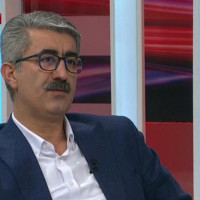
Aim & Scope
Nüsha Journal is a peer-reviewed
international journal which is published twice a year in June and December.
Nüsha accepts the articles written in the field of orientalism, (language,
literature, literary history, culture); verification and presentation of
manuscripts, scientific criticism, book criticism and translated articles. The
articles to be published are required to comply with the criteria of scientific
research, to bring an innovation to the world of science and not to be
published elsewhere.
Nüsha Journal is a peer-reviewed international journal in the field of Orientalism (language, literature, literary history, culture), published twice a year.
The language of the journal is Turkish, Arabic, Persian, Urdu and English. Nüsha Journal is an Open Access journal and provides direct access to the content it publishes.
Author Guidelines
NÜSHA JOURNAL (ORIENTAL STUDIES)
PUBLICATION POLICY
Nüsha Journal (Oriental Studies) is a peer-reviewed international journal which is published twice a year in June and December. Nüsha accepts the articles written in the field of orientalism, (language, literature, literary history, culture); verification and presentation of manuscripts, scientific criticism, book criticism and translated articles. The articles to be published are required to comply with the criteria of scientific research, to bring an innovation to the world of science and not to be published elsewhere. Article processes are carried out through https://dergipark.org.tr/tr/pub/nusha
Evaluation of articles
• The first page of the article should contain the author's name, surname, title, institution, e-mail and Orcid No.
• If the manuscripts submitted to Nüsha Oriental Studies Journal are subjected to preliminary evaluation in terms of compliance with the principles of the journal, they are sent to two referees from the same field for scientific review. In this process, the identity of the referees and the author is kept confidential. The editorial board makes the final decision on the article.
• An author who sends an article to our journal cannot have his/her article published in two consecutive issues or more than one issue in the same year. At least one issue must be published.
• If one of the referee reports for publication is positive and the other is negative, the work is sent to a third referee.
• The articles that are decided to be published are published in the printed and online form after the page arrangement.
• All responsibility for the content of the manuscripts published in Nüsha Journal of Oriental Studies belongs to the authors.
Publishing language
• The publication language of Nüsha is Turkish of Turkey. However, English, Arabic, Persian and Urdu articles may be published with the decision of the editorial board. In addition, Arabic, Persian and Ottoman Turkish manuscripts that not more than 20 pages may be published.
Spelling rules and page layout
• Manuscripts should be written in MS Word or compatible programs. The font should be Times New Roman, 11 pt and 1 line spacing. For articles written in Arabic the font should be Sakkal Majalla, 13 t and 1; for Persian articles, Blotus, 13 pt, and 1; for Urdu articles, 11 pt and 1..
• The page is A4-size; top 2 cm, bottom and left margins 2.5 cm; right margin 1.75 cm.
• It is mandatory to use the "Article Template" in the articles to be sent to our journal. For the article template, see: https://dergipark.org.tr/tr/download/journal-file/29739
• Paragraph spacing before must be 0 nk, after 6 nk.
• The title of the manuscript should be written in bold and should be compatible with the content of the subject.
• At the beginning of the articles except for book criticism there must be Turkish and English abstracts consisting of at least 200 words and keywords consist of 4 to 5 words. Turkish and English titles of the manuscript should be included. Abstracts in Turkish or English are required for the articles in Arabic or Persian.
• Authors whose work is accepted for publication are required to add a structured abstract that consist of at least 700 words followed by an abstract in English with the title of Structured Abstract. The structured abstract should include findings outside the introductory part of the study and conclusions. Structured abstract will make it easier for articles to be cited in abroad.
• Titles should be written in bold. The use of intermediate titles in long articles will be beneficial for the reader.
• The spelling and punctuation guidelines of the Turkish Language Association should be taken into consideration in cases where the article or subject necessitates.
• It is sufficient to show the places that you want to emphasize in the text with “quotes”.
• When quoting the block, the entire quotation should be in a tab (1 cm). References should be cited when the citation is finished (source, year, page number).
• In articles with multiple authors, the manuscript should be uploaded to the system with the name of first author. The names of subsequent authors should be indicated on the system in the other authors section.
Reference
• Nüsha Journal of Oriental Studies accepts APA 6.0 or Endnotes citation.
• In-text references should be presented as author surname, year of the work and page number. Ex. (Sahinoglu, 1991, p. 97).
• If there is a compiler, translator, author, proofreader or editor of a work, it should be surely shown in the bibliography.
• In electronic sources, the author, the title of the work and the publication date should be used. Access date must be given in the bibliography within the last six months.
• References that are not cited in the text should not be shown in the bibliography.
• Bibliography should be arranged alphabetically according to the surnames of the authors at the end of the article. In more than one work of the same author, the author's name is indicated with a straight line after the first source.
• Articles written in languages other than the Latin alphabet such as Arabic, Persian and Urdu must include the title, abstract and keywords written in Latin letters; The sources used in the bibliography should be given in transcription/translation.
Author's Surname, Initials of Author's Name. (Year). The name of the book is italic and the first letters are in big letters (except conjunctions). Place of Publication: Publisher.
Author's Surname, Initials of Author's Name. (Year). The name of the book is italic and the first letters are in big letters (except conjunctions). (First Letters of Translator's Name. Translator's Surname, Translated.) Print Place: Publisher.
Babacan, İ. (2015). “Tarzî-i Efşâr’ın Türkçe Şiirleriyle Farsçada Oluşturduğu Folklorik Bir Üslup” Bilig. (Yaz, 74, s. 21-44) Ankara.
Coşguner, F. (2002). Menûçihrî-yi Dâmgânî, Divanının Tahlili ve Tercümesi. (Yayımlanmamış Doktora Tezi) Ankara Üniversitesi, Sosyal Bilimler Enstitüsü, Ankara.
Dostoyevski, F. M. (2015). Yeraltından Notlar. (N. Y. Taluy, Çev.) İstanbul: İş Bankası Kültür Yayınları.
Irâkî, F. (1386/2007). Külliyât-ı Fahreddîn-i Irâkî. (tsh. Doktor Nesrîn Muhteşem) Tahran: İntişârât-i Zevvâr.
Kırlangıç, H. (2014). Meşrutiyetten Cumhuriyete İran Şiiri. Ankara: Hece Yayınları.
¬¬¬¬¬¬¬———, (2010). Ahmed Şamlû ve Şiiri, Yalnız Yürüyen Adamın Şarkısı. İstanbul: Ağaç Yayınları.
Murtaza, K. (1384/2005). Şamlû ve Câ-yi Şi‘reş. Vijenâme. (Sonbahar/Kış, I, s. 71-76)
https://www.noormags.ir/view/fa/articlepage/291218/ adresinden erişilmiştir. (Erişim tarihi: 26.04.2018).
Şahinoğlu, M. N. (1991). “Attâr, Ferîdüddîn”, Türkiye Diyanet Vakfı İslam Ansiklopedisi. (IV, s. 95-98) İstanbul: Türkiye Diyanet Vakfı Yayınları.For detailed information, please refer to https://www.tk.org.tr/APA/apa_2.pdf
Contact: akademiknusha@gmail.com
Web Page: http://nusha.com.tr/
Ethical Principles and Publication Policy
Publication Ethics Statement
All parties involved in the publication process (authors, editorial board and reviewers) must make decisions in accordance with ethical standards of conduct. Nüsha Journal expects all parties to comply with these standards. Best publication ethics standards are upheld and all possible precautions are taken against publication malpractices. Nüsha Journal, as a publisher, takes its duty of guardianship seriously in all stages of publishing and accepts its ethical and other responsibilities.
International Standards for Authors
Nüsha Journal does not request a signed application letter from all authors of an article and does not impose any practices that impose orders on authors. All authors applying to Nüsha Journal are expected to voluntarily comply with international standards [ethical principles determined by the Committee on Publication Ethics (COPE). https://publicationethics.org /].
Authors must confirm that their articles are original works. Plagiarism, fabrication, forgery, duplicate publication, data production, etc. are prohibited.
Authors should not cause physical or legal harm to research participants and should not engage in psychological abuse. In addition, authors should guarantee the privacy and anonymity of their research participants.
Authors should identify the persons or institutions that support the research (sponsor).
Authors should confirm that the article has not been published before and is not currently being evaluated for publication elsewhere.
Authors should make sure that they have included all sources used in the preparation of their article in the reference list.
When an author discovers a significant error or inaccuracy in their published work, they must immediately notify the journal editor or publisher and cooperate with the editor to retract or correct the article.
Authors should report any conflict of interest or convergence of interest to Nüsha Journal.
All submitted articles must be subject to similarity control by the authors using the ithenticate program and the similarity report must be uploaded to the journal system together with the article. Authors must absolutely avoid plagiarism, including self-plagiarism. Articles with results exceeding 18% in the similarity report outside the References section are not evaluated by Nüsha Journal. International Standards for the Editorial Board
Editorial Board and Editorial Board members are required to comply with the international standards of the Editorial Board. The editor and editorial board members of Nüsha Journal are expected to voluntarily comply with international standards [the ethical principles determined by the Committee on Publication Ethics (COPE). https://publicationethics.org / ].
The Editorial Board thoroughly checks submitted articles to determine whether they can be published and to prevent misconduct. If a study is identified as malicious, the relevant author is responsible for retracting or correcting the article based on feedback from the editor and reviewers.
The Editorial Board must keep all information regarding submitted articles confidential.
The Editorial Board is responsible for making publication decisions for submitted articles.
The Editorial Board should strive to meet the needs of readers and authors.
The Editorial Board should strive to improve and develop the quality of Nüsha Journal.
The Editorial Board should attach utmost importance to scientific quality and originality.
The Editorial Board should always be ready to publish corrections, clarifications, retractions and apologies when necessary.
International Standards for Reviewers
Reviewers must comply with international review standards after accepting the review invitation. Reviewers of Nüsha Journal are expected to voluntarily comply with international standards [the ethical principles determined by the Committee on Publication Ethics (COPE). https://publicationethics.org /].
Reviewers must keep information about the manuscript confidential.
Reviewers must bring to the attention of the Editorial Board all information that may be grounds for rejecting the publication of the manuscript.
Reviewers must evaluate the manuscripts in terms of scientific quality.
Reviewers must objectively evaluate the manuscripts only according to their originality, importance and relevance to the journal's fields.
Reviewers must notify Nüsha Journal of any conflict of interest.
Approval Policy
Author/s must comply with ethical and legal standards and the following conditions must be notified to those who participated in the research conducted to produce the manuscript:
Participants in your research must be informed that a study will be conducted on them.
Participants in your research should be informed that participation is voluntary, that there is no penalty for refusing to participate, and that participants can withdraw at any time without penalty.
Participants in your research should be informed about the purpose of your research and the procedures you will follow in the research.
Participants in your research should be informed about the contact information where they can reach you for answers to questions about the research.
Participation in your research
Price Policy
Free
Indexes
Journal Boards
Editor in Chiefs

He was born in 1988 in Kütahya. He completed his primary and secondary education in Kütahya between 1994-2006. He graduated from the Persian Language and Literature Department of the Oriental Languages and Literatures of the Faculty of Language, History and Geography at Ankara University in 2012. In 2013, he was appointed as a research assistant at the Persian Translation and Interpreting Department of the Faculty of Arts and Sciences at Kırıkkale University. In 2014, he completed his master's degree in Persian Language and Literature at the Institute of Social Sciences at Kırıkkale University. In 2020, he completed his doctorate with a thesis titled “Persian Grammar Books Written in the Anatolian Area” in the joint doctorate program in Persian Language and Literature within Kırıkkale University and Ankara University. The author has published articles in various journals such as Nüsha, Erdem, and Tezkire, and his doctoral dissertation, "Persian Grammar Books Written in Anatolia," was published by the Turkish Language Association in 2022. He has been the editor of Nüsha Joorunal since 2017. He is a full member of the Scientific Board of the Atatürk Culture Center Presidency of the Atatürk Supreme Council for Culture, Language, and History. He has participated in education and translation projects at various institutions, including Ankara University TÖMER and the Turks Abroad and Related Communities. His poetry and short story translations appear in the Hece and Hece Öykü magazines. He currently serves as the Cultural and Public Relations Counselor at the Turkish Embassy in Tehran. He is married with two children.
Editors

He was born in 1988 in Kütahya. He completed his primary and secondary education in Kütahya between 1994-2006. He graduated from the Persian Language and Literature Department of the Oriental Languages and Literatures of the Faculty of Language, History and Geography at Ankara University in 2012. In 2013, he was appointed as a research assistant at the Persian Translation and Interpreting Department of the Faculty of Arts and Sciences at Kırıkkale University. In 2014, he completed his master's degree in Persian Language and Literature at the Institute of Social Sciences at Kırıkkale University. In 2020, he completed his doctorate with a thesis titled “Persian Grammar Books Written in the Anatolian Area” in the joint doctorate program in Persian Language and Literature within Kırıkkale University and Ankara University. The author has published articles in various journals such as Nüsha, Erdem, and Tezkire, and his doctoral dissertation, "Persian Grammar Books Written in Anatolia," was published by the Turkish Language Association in 2022. He has been the editor of Nüsha Joorunal since 2017. He is a full member of the Scientific Board of the Atatürk Culture Center Presidency of the Atatürk Supreme Council for Culture, Language, and History. He has participated in education and translation projects at various institutions, including Ankara University TÖMER and the Turks Abroad and Related Communities. His poetry and short story translations appear in the Hece and Hece Öykü magazines. He currently serves as the Cultural and Public Relations Counselor at the Turkish Embassy in Tehran. He is married with two children.

Quartex in gazabına uğradı
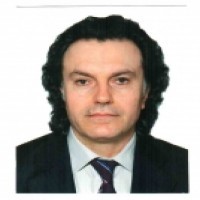
Editorial Board
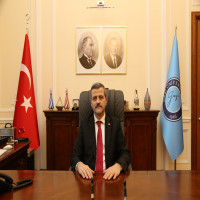
Prof. Dr. Musa YILDIZ
Gazi Üniversitesi
Samsun, 1967.
Eğitim
Derece
Alan
Üniversite
Yıl
Lisans
Arap Dili Eğitimi
Gazi Üniversitesi
1988
Yüksek Lisans
Arap Dili Eğitimi
Gazi Üniversitesi
1992
Doktora
Arap Dili Eğitimi
Gazi Üniversitesi
1998
Doçent
Arap Dili ve Edebiyatı
YÖK Üniversitelerarası Kurul
2002
Profesör
Arap Dili Eğitimi
Gazi Üniversitesi
2007
Lisans
Sosyoloji
Anadolu Üniversitesi
2021
Akademik Hayatı
Görev Unvanı
Görev Yeri
Yıl
Araş.Gör.
Gazi Üniversitesi Gazi Eğitim Fakültesi
1994-1996
Mis.Araş.Gör.
Kahire Üniversitesi Edebiyat Fakültesi
1996-1997
Araş.Gör.
Gazi Üniversitesi Gazi Eğitim Fakültesi
1997-1998
Öğr. Gör. Dr.
Gazi Üniversitesi Gazi Eğitim Fakültesi
1998-2001
Yrd. Doç. Dr.
Gazi Üniversitesi Gazi Eğitim Fakültesi
2001-2002
Doç. Dr.
Gazi Üniversitesi Gazi Eğitim Fakültesi
2002-2003
Doç. Dr.
Ürdün Üniversitesi Edebiyat Fakültesi
2003-2004
Doç. Dr.
Gazi Üniversitesi Gazi Eğitim Fakültesi
2004-2007
Prof. Dr.
Gazi Üniversitesi Gazi Eğitim Fakültesi
2007-
Çalışma Hayatı
Gazi Eğitim Fakültesi Arap Dili Eğitimi Ana Bilim Dalı Başkanı
2002-2003
Gazi Eğitim Fakültesi Yabancı Diller Eğitimi Bölüm Başkan Yrd.
2007-2010
Gazi Eğitim Fakültesi Erasmus Koordinatörü
2007-2010
Gazi Üniversitesi Eğitim Bilimleri Enstitüsü Müdür Yrd.
2010-2011
Gazi Üniversitesi OYP Kurum Koordinatörü (Kurucu)
2012-2013
Gazi Eğitim Fakültesi Arap Dili Eğitimi Ana Bilim Dalı Başkanı
2012-2013
Gazi Üniversitesi Eğitim Bilimleri Enstitüsü Müdürü
2012-2013
Hoca Ahmet Yesevi Üniversitesi Rektör Vekili (Eş Rektör)
2013-2014
Gazi Eğitim Fakültesi Arap Dili Eğitimi Ana Bilim Dalı Başkanı
2014-2019
Hoca Ahmet Yesevi Üniversitesi Mütevelli Heyet Başkanı
2015-2020
Gazi Üniversitesi Rektörü 2020-
Diğer Profesyonel Etkinlikler
Bilig Dergisi Danışma Kurulu Üyesi
Ahmet Yesevi Üniversitesi Türkoloji Dergisi Danışma Kurulu Üyesi
Ahmet Yesevi Üniversitesi Eurasian Research Journal Bilim Kurulu Üyesi
Diyanet Arapça İlmi Dergi Danışma Kurulu Üyesi
Marife Dergisi Danışma Kurulu Üyesi
Hacettepe Üniversitesi Türkiyat Araştırmaları Dergisi Danışma Kurulu Üyesi
Nüsha Şarkiyat Araştırmaları Dergisi, Editörler Kurulu Üyesi
EKEV Akademi Dergisi, Yayın Danışma Kurulu Üyesi
SDÜ İlahiyat Fakültesi Dergisi, Hakem Kurulu Üyesi
Sütçü İmam Ü. İlahiyat Fak. Dergisi, Danışma Kurulu Üyesi
İ.Ü. Edebiyat Fakültesi, Şarkiyat Mecmuası Hakem Kurulu Üyesi
İslâmî İlimler Dergisi, Danışma Kurulu Üyesi
Uluslararası Sosyal Araştırmalar Dergisi, Hakem ve Danışma Kurulu Üyesi
Usul Dergisi, Hakem Kurulu Üyesi
Ankara Üniversitesi İlahiyat Fak. Dergisi, Hakem Kurulu Üyesi
Vakıflar Dergisi Yayın Kurulu Üyesi
Mardin Artuklu Üniversitesi İlahiyat Bilimleri Fakültesi “Artuklu Akademi” Dergisi, Hakem Kurulu Üyesi
Kırıkkale Üniversitesi İslami İlimler Fakültesi Dergisi Danışma Kurulu Üyesi
''TYB Akademi'' Dergisi Bilim Kurulu Üyesi
Düzce Üniversitesi İlahiyat Fakültesi Dergisi Danışma Kurulu Üyesi
Lisanî İlimler Dergisi Danışma Kurulu Üyesi
Bildiği Diller
Arapça, Fransızca, İngilizce ve Kazak Türkçesi.
İletişim
Gazi Üniversitesi Rektörlüğü
Emniyet Mahallesi Bandırma Caddesi No:6/1
06560 Yenimahalle/ANKARA
Telefon: +90 312 223 75 70
+90 312 213 42 44
e-posta: ymusa@gazi.edu.tr
Prof.Dr.,AnkaraÜniversitesi,DilveTarih-Coğrafya Fakültesi,DoğuDileriveEdebiyatlarıBölümü,2018 -DevamEdiyor
Doç.Dr.,AnkaraÜniversitesi,DilveTarih-Coğrafya Fakültesi,DoğuDileriveEdebiyatlarıBölümü,2012 -2018
Yrd.Doç.Dr.,AnkaraÜniversitesi,DilveTarih-Coğrafya Fakültesi,DoğuDileriveEdebiyatlarıBölümü,2010 -2012
ÖğretimGörevlisiDr.,AnkaraÜniversitesi,DilveTarih-Coğrafya Fakültesi,DoğuDileriveEdebiyatlarıBölümü,2003 -
2010
Akademik İdariDeneyim
Akademik İdariDeneyim
AnkaraÜniversitesi,2015 -DevamEdiyor
AnkaraÜniversitesi,2014 -DevamEdiyor
AnkaraÜniversitesi,2013 -DevamEdiyor
Doktora,AnkaraÜniversitesi,SosyalBilimler Enstitüsü,ArapDiliVeEdebiyatı (Yl) (Tezli),Türkiye 1999 -2003
Lisans,AnkaraÜniversitesi,DilVeTarihCoğrafya Fakültesi,DoğuDileriVeEdebiyatlarıBölümü,Türkiye 1985 -1999
YüksekLisans,AnkaraÜniversitesi,SosyalBilimler Enstitüsü,ArapDiliVeEdebiyatı (Yl) (Tezli),Türkiye 1996 -1998

1966 yılı Konya doğumlu olan Derya Örs, ilk, orta ve lise öğrenimini Akşehir ve Konya’da gördükten sonra, Ankara Üniversitesi Dil ve Tarih-Coğrafya Fakültesi Fars Dili ve Edebiyatı Anabilim Dalı’nda (1985-1989) lisans eğitimini tamamlayarak 07.03.1990’da adı geçen Anabilim Dalına araştırma görevlisi olarak atanmıştır.
İlhanlı tarihiyle ilgili “Kâşânî, Târîh-i Olcaytu (İnceleme-Çeviri)” başlıklı yüksek lisans tezini 21.10.1992’de, Akkoyunlu tarihiyle ilgili "Fazlullah b. Rûzbihân-i Huncî ve Târîh-i Âlem-ârâ-yi Emînî’si (İnceleme-Farsça Metin Neşri-Çeviri)" başlıklı doktora tezini 12.01.1999’da savunmuştur.
Polatlı Topçu ve Füze Okulu’nda yedek subay aday öğrenci eğitimini bitirdikten sonra İstanbul Küçükyalı’da “K.K.K. Lisan Okulu Farsça Bölümü’nde” yedek subay olarak öğretmen ve çevirmen sıfatıyla vatani görevini (Mart 1999-Temmuz 2000) ifa etmiştir.
13.03.2002’de yardımcı doçent kadrosuna atanmış, 16.04.2002’de doçent olmuş, 25.04.2010’da profesör unvanını aldıktan sonra 13.01.2011’de Ankara’da beşinci devlet üniversitesi olarak kurulan Yıldırım Beyazıt Üniversitesi, İnsan ve Toplum Bilimleri Fakültesi’ne kurucu dekan olarak atanmıştır. Yaklaşık iki yıl süren bu görevin ardından, 03.11.2012-14.01.2019 tarihleri arasında Atatürk Kültür, Dil ve Tarih Yüksek Kurumu Başkanlığı görevini yürütmüş, bu arada Yunus Emre Vakfı Mütevelli Üyeliğinde bulunmuş (2014-2017), Türkiye Bilimler Akademisi Türk İslam Bilim Dizisi Yayın Kurulu Üyeliği yapmış (2016-2018), 15 Ocak 2019 tarihi itibarıyla Türkiye Cumhuriyeti Tahran Büyükelçisi olarak atandığı görevinden 1 Mart 2023 itibarıyla dönen Derya Örs, 26 Haziran 2023 tarihinde Atatürk Kültür, Dil ve Tarih Yüksek Kurumu Başkanlığına yeniden atanmıştır.
Akademik hayatı boyunca çok sayıda yüksek lisans ve doktora tezi yöneten Derya Örs, şarkiyat ve sosyal bilimler alanında yayın yapan kimi ulusal ve uluslar arası akademik dergilerde hakemlik ve yayın kurulu üyeliği yapmıştır. Fars Dili ve Edebiyatı alanında çok sayıda telif ve tercüme makale, kitap, ansiklopedi maddesi ve bilimsel bildirisi bulunan Derya Örs, şarkiyat alanında yayın yapmak üzere kurulan Nüsha Şarkiyat Araştırmaları Dergisi’nin (2001-) kurucularından ve editörlerinden birisi olup uzun yıllar, Ankara’da bulunan Mevlana Araştırmaları Derneği’nde “Mevlana’dan Gazel Okumaları” (2004-2011) ve Türkiye Yazarlar Birliği’nde “Mesnevi Şerhi” (2005-2011) derslerine katkı vermiştir.
Çalışmalarını klasik ve çağdaş Fars dili ve edebiyatı, İran tarihi, yazma eser metin neşri, yazma eser kataloglaması, tarihî ve güncel Farsça-Türkçe sözlük yazımı, Osmanlı Türkçesi sözlük yazımı, Arap harfli Türkçe edebiyat ve tarih kitaplarının neşri üzerine yoğunlaştıran Derya Örs, özellikle Konya ve onunla bütünleşen Hz. Mevlânâ ve eserleri hakkında çalışmalar yapmış, Prof. Dr. Adnan Karaismailoğlu ile “Mesnevî-i Manevî’nin” Farsça metnini hazırlamış (2006), Prof. Dr. Hicabi Kırlangıç ile Mesnevi’yi (6 Cilt, 2007) Türkçeye kazandırmıştır.
Türk dünyasına yaptığı üstün hizmetlerden dolayı TÜRKSOY 25. Yıl Madalyası’na layık görülmüş, Azerbaycan-Türkiye dostluğunun gelişmesine katkılarından dolayı 2016 yılında Azerbaycan Millî İlimler Akademisi tarafından “Fahri Doktora” unvanı ile taltif edilmiş, 2020 yılında İran İslam Cumhuriyeti Fars Dili ve Edebiyatı Akademisi şeref üyeliğine seçilmiştir.
Akademik çalışmalarının yanı sıra TRT için, klasik Türk edebiyatı sohbetlerini içeren Dürr-i Meknun (2014-2015, 25 Bölüm) ve dokuz Balkan ülkesindeki Türk-İslam varlığını konu alan Gönül Yolu (2016-2017, 13 Bölüm) adlı programları bizzat hazırlamış ve sunmuştur.
Evli ve iki çocuk sahibi olan Derya Örs, Farsça ve İngilizce bilmektedir.
Spelling and Language Editors
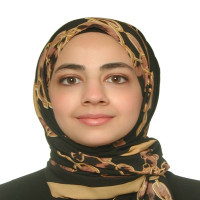

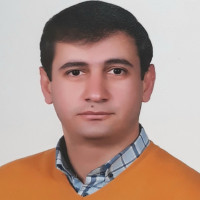
Advisory Board
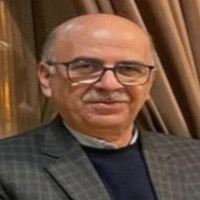

09/08/1963 Adapazarı doğumludur. Orta öğretimini Adapazarı’nda tamamladı. 1983-1984 eğitim-öğretim döneminde Ankara Üniversitesi Dil ve Tarih-Coğrafya Fakültesi Doğu Dilleri ve Edebiyatları Bölümü Fars Dili ve Edebiyatı Anabilim Dalı’nda filoloji eğitimine başladı ve adı geçen bölümden 1987 yılında mezun oldu. Ankara Üniversitesi Sosyal Bilimler Enstitüsü programına bağlı olarak Mayıs 1990 tarihinde Yüksek Lisansını tamamladı. Mart 1989-Ekim 1990 tarihleri arasında Ankara Üniversitesi Türkçe Öğretim Merkezi (TÖMER)’nde sözleşmeli okutman olarak görev yaptı. Ekim 1990’da aynı enstitüde Doktora programına katıldı. 31 Aralık 1991 tarihinde Selçuk Üniversitesi Fen-Edebiyat Fakültesi Doğu Dilleri ve Edebiyatları Fars Dili ve Edebiyatı Anabilim Dalı’na araştırma görevlisi olarak atandı. 20 Şubat 1997’de Edebiyat Doktoru unvanını aldı. 12.04.1999 tarihinde Selçuk Üniversitesi Fen-Edebiyat Fakültesi Doğu Dilleri ve Edebiyatları Bölümü Fars Dili ve Edebiyatı Anabilim Dalı yardımcı doçent kadrosuna atandı. 18.09.2006 tarihinde Fars Dili ve Edebiyatı Anabilim Dalı başkanlığına atandı. 14.12.2007 tarihinde Doçent unvanını aldı. 26.08.2010 tarihinde Kırıkkale Üniversitesi Fen-Edebiyat Fakültesi Doğu Dilleri ve Edebiyatları Bölümü Fars Dili ve Edebiyatı Anabilim Dalı Doçentlik kadrosuna, 05.10.2010 tarihinde Bölüm Başkanlığı görevine; 08.03.2013 tarihinde aynı üniversitede profesörlük kadrosuna atandı. 11.02.2014-05.10.2014 tarihleri arasında Doğu Dilleri ve Edebiyatları Bölüm başkanlığını; 14.02.2014 tarihinden itibaren Doğu Dilleri ve Edebiyatları Bölüm Başkan Yardımcılığı ve Mütercim Tercümanlık (Farsça) Anabilim Dalı başkanlığı görevlerini yürüttü. 20.02.2019 tarihinde Yıldırım Beyazıt Üniversitesi İnsan ve Toplum Bilimleri Fakültesi Doğu Dilleri ve Edebiyatları Bölümü Fars Dili ve Edebiyatı Anabilim Dalı Prof. kadrosuna atandı. 12.06.2019-02.11.2023 arasında Doğu Dilleri ve Edebiyatları Bölüm başkanlığını, 02.03.2019-31.07.2024 tarihleri arasında AYBÜ İnsan ve Toplum Bilimleri Fakültesi Doğu Dilleri ve Edebiyatları Bölümü Fars Dili ve Edebiyatı Anabilim Dalı başkanlığını yürütmüştür.

Turgay Şafak lisansını İstanbul Üniversitesi Edebiyat Fakültesi Kütüphanecilik bölümünde tamamlamıştır. Yüksek Lisans ve Doktora eğitimini Tahran Üniversitesi Edebiyat ve Beşeri Bilimler Fakültesi Fars Dili ve Edebiyatı Bölümünde yapmıştır. Boğaziçi ve İstanbul Şehir Üniversitelerinde Farsça dersleri vermiştir. 2016-2018 yılları arasında Tahran’da Yunus Emre Enstitüsü müdürü olarak görev yapmıştır. Hâlen İstanbul Medeniyet Üniversitesi Doğu Dilleri ve Edebiyatları Bölümü Fars Dili ve Edebiyatı Anabilim Dalında öğretim üyesidir.

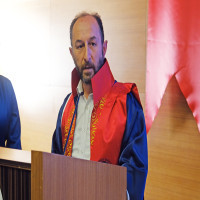

 Web
Web
1965 yılında Konya’nın Sarayönü ilçesine bağlı Ladik kasabasında dünyaya geldi. İlk ve orta öğrenimini Ladik’te, lise tahsilini Sarayönü ilçesinde tamamladı. 1988’de Atatürk Üniversitesi Fen-Edebiyat Fakültesi Doğu Dilleri ve Edebiyatları Bölümü Fars Dili ve Edebiyatı Anabilim Dalı’ndan mezun oldu. 1989-1990 yılları arasında vatanî görevini yaptı. 1990’da mezun olduğu bölümde Araştırma görevlisi olarak göreve başladı. 1992 yılında Atatürk Üniversitesi Sosyal Bilimler Enstitüsü’ne bağlı olarak, Sultan Ahmed Celâyir’in Kitabu’l-garbiyyât adlı Divanı isimli çalışma ile yüksek lisansını; 1996’da yine aynı Enstitü’ye bağlı olarak Sultan Veled ve Rebabnâme adlı çalışma ile doktorasını tamamladı. 1997’de yardımcı doçent, 2000 yılında da doçent oldu. 06.11.2004-25.05.2010 tarihleri arasında Fars Dili ve Edebiyatı Ana Bilim Dalı Başkanlığı görevinde bulundu. 07.04.2006’da Profesör oldu. 23.11.2012-25.11.2015 yılları arasında Atatürk Üniversitesi Edebiyat Fakültesi’nde dekan yardımcısı; 19.08.2016-03.11.2020 yılları arasında ise aynı fakültede dekan olarak görev yaptı. Evli ve dört çocuk babasıdır.

Prof. Dr. Mehmet Hakkı Suçin graduated from the Department of Arabic Language and Literature at Ankara University. His master’s thesis examined the short fiction of Yahya Haqqi, and his doctoral dissertation addressed translation problems and strategies between Arabic and Turkish. He served as a visiting professor at the University of Manchester in the United Kingdom. He participated in the production team of the semi-dramatic documentary film "Golden Wings: A Story of Courage," produced under the auspices of the Turkish Radio and Television Corporation (TRT). He chaired the committee that prepared Arabic language curricula for primary, middle, and secondary education in Turkey, in line with the Common European Framework of Reference for Languages (CEFR).
He served as a member of the jury of the International Prize for Arabic Fiction, known as the “Arabic Booker Prize,” in its 2014 edition. He has received several prestigious awards, including the Sharjah Translation Award “Turjuman” for his Turkish translation of The Ring of the Dove by Ibn Hazm of al-Andalus; the Sheikh Hamad Award for Translation, Achievement Category, in 2022 for his overall contributions to the field of translation; the Best Translation Award for 2021 from the Kitap supplement of the Turkish newspaper Dünya for his translation of the novel Minor Detail by the novelist Adania Shibli; and the Best Translation Award for 2016 from the Writers’ Union of Turkey for his translation of The Book of Love by the poet Nizar Qabbani.
He has translated into Turkish numerous prominent figures from classical and modern Arabic literature, including, by way of example and not limitation, the poets of the Ten Mu‘allaqāt, Abū al-Ṭayyib al-Mutanabbī, Ibn Ṭufayl, Ibn Ḥazm al-Andalusī, Ibn al-Kalbī, Kahlil Gibran, Adonis (four works), Mahmoud Darwish (four poetry collections), Nizar Qabbani, Mohammed Bennis, Naguib Mahfouz, Ghassan Kanafani, Adania Shibli, and others. He has also translated into Arabic works by classical figures of Turkish poetry such as Yunus Emre and Ahmad Yasawi, as well as authors from modern Turkish literature.
He has published numerous academic articles in Turkey and abroad in the fields of translation studies, Arabic literature, and teaching Arabic to speakers of other languages. Since 2012, he has supervised literary translation workshops in Turkey and internationally. He has been running a blog on Arabic literature and translation entitled Translation and Beyond (www.çeviriveotesi.org) since 2014. He is currently a faculty member in the Department of Arabic Language at Gazi University in Ankara, Turkiye.


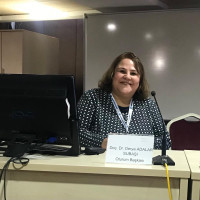

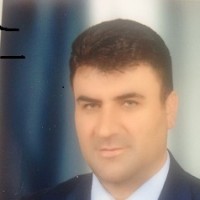
1970 Van doğumlu. İlk ve orta öğretimini Van ve Ankara'da tamamladıktan sonra 1988-92 yıllarında Atatürk Üniversitesi
Edebiyat Fakültesi Doğu Dilleri Bölümü Arap Dili ve Edebiyatı'nı başarıyla tamamladı. 1994 yılında YYÜ İlahiyat
Fakültesine Araştırma Görevlisi olarak atandı. 1995 yılında Yüzüncü Yıl Üniversitesi Sosyal Bilimler Enstitüsünde Yüksek
Lisansını tamamladı. 2001 yılında "Nahivciler ile Mantıkçılar Arasındaki Tartışmalar" adlı teziyle Marmara Üniversitesi
Sosyal Bilimler Enstitüsünde Doktorasını verdi. 2008 yılında doçent 2013 yılında ise Profesör oldu. Halen aynı kurumda
öğretim üyesi olarak çalışıyor
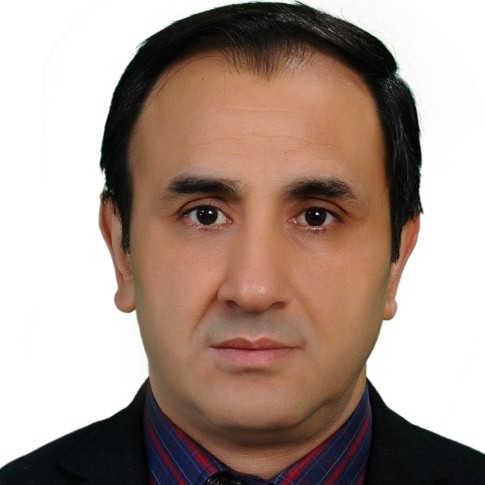
1966 yılında Hatay’ın İskenderun ilçesinde doğdu. İlk, orta ve lise öğrenimini aynı ilçede tamamladı. 1986 yılında girdiği Gazi Üniversitesi Gazi Eğitim Fakültesi Yabancı Diller Eğitimi Bölümü Arap Dili Eğitimi Anabilim Dalı’ndan 1990’da mezun oldu. Bir yıl sonra Milli Eğitim Bakanlığı’nın burslusu olarak Ürdün’de yüksek lisans eğitimine başladı. 1994 yılında Türkiye’ye döndü ve Gazi Üniversitesi Gazi Eğitim Fakültesi Yabancı Diller Bölümü Arap Dili Eğitimi Anabilim Dalı’nda okutman olarak göreve başladı. Ürdün Üniversitesinde başladığı yüksek lisans eğitimini 1998’de Gazi Üniversitesi Sosyal Bilimler Enstitüsü’nde “Mehcer Edebiyatı ve Arap Edebiyatına Etkisi” başlıklı tezle tamamladı. Ertesi yıl başladığı Doktora eğitimini 2004 yılında Gazi Üniversitesi Eğitim Bilimleri Enstitüsünde “Modern Arapçadaki Deyimlerin Dilbilimsel Açıdan İncelenmesi ve Yabancı Dil Öğretimindeki Yeri” başlıklı tezle tamamladı.
Lisans ve lisansüstü düzeyde verdiği dersler arasında “Okuma Becerileri”, “İleri Okuma Becerileri”, “Çocuklara Yabancı Dil Öğretimi”, “Atasözü ve Deyim İncelemesi”, “Dil Felsefesi ve Arap Dili”, “Psikodilbilim”, “Kuramsal Dilbilim” gibi dersler bulunmaktadır. Üç çocuk babası olup hâlen Gazi Üniversitesi Gazi Eğitim Fakültesi Yabancı Diller Eğitimi Bölümü Arap Dili Eğitimi Anabilim Dalı’nda öğretim üyesi (Prof. Dr.) olarak görevine devam etmektedir.



Dr. Muhammad Khawar Nawazish is an academic, researcher, and author, currently serving as an Associate Professor of Urdu at BZU, Multan, Pakistan. With over 15 years of teaching and research experience, he has nurtured critical thinking and originality among his students. He started his academic career as a Lecturer in Urdu from Govt. Post Graduate College Khanewal after being selected through PPSC in 2009. He earned his PhD in Urdu from BZU in 2016. His dissertation, titled Similarities and Diversities between Urdu and Hindi, later published by Sang-e-Meel Publications Lahore under the title Urdu Hindi: Vahdat/Sanviat, has been recognized as a significant contribution to the field. Prior to his PhD, Dr. Khawar completed his MPhil in 2011 and obtained prestigious Rasheed Ahmad Siddiqi Gold Medal from BZU Multan. His MPhil dissertation, Mashaheer-e-Adab: Khar Zar-e-Sysat Mein (The Political Struggle of Renowned Urdu Literary Figures) was published by the National Language Authority Islamabad in 2012. It delves into the intricate relationship between literature and politics and explores how the political movements have shaped the literary contributions of renowned figures. In addition to these scholarly works, Dr. Khawar Nawazish is the author of six literary books that have significantly contributed to the discourse on Urdu literature. His most recent publication, Moaqef Ki Talash (Finding a Stance), has garnered widespread acclaim in literary circles. Essays in this book explore critical insights such as the ideological foundations of Urdu literature, progressivism, and the relationship between culture and literature. As a prolific researcher, Dr. Khawar has published more than 50 research papers in leading national and international journals. His commitment to nurturing emerging scholars is also evident in his supervising of 60 M.A/BS (Hons), 55 MPhil, and 12 PhD scholars, emphasizing the importance of original research and guiding students to produce publishable work. In recognition of his contributions to academia and research, Dr. Khawar received the Best Young Research Scholar Award from the Higher Education Commission of Pakistan in 2018. He has made significant contributions through his role as a reviewer and contributor for the Punjab Curriculum and Textbook Board. Dr. Khawar has played a pivotal role in developing Urdu textbooks for grades 6-12, ensuring the curriculum reflects contemporary research and pedagogical practices, thereby shaping the education of countless students across Punjab. In university governance, he is not only an active member of the Board of Studies in Urdu at BZU but also other major universities in South Punjab, such as Emerson University Multan, Ghazi University DG Khan and University of Layyah. He has worked at several organizational leadership positions, including Departmental Director of Student Affairs, Coordinator of MPhil/PhD Programs, Chief Organizer of the Akkas Literary Forum, and the General Secretary of the Academic Staff Association at BZU. His editorial expertise is reflected in his five-year tenure as Sub-Editor and Editor of the HEC-approved-'Y'-Category Journal of Research (Urdu). Dr. Khawar Nawazish has won four research projects through the (ORIC) at BZU, focusing on developing an index of Urdu research journals to facilitate access for future researchers. He has participated in over 60 national and international conferences. He has organized an international online conference also on the topic of “Translation and Trans-Cultural Studies” in 2021, which led to the establishment of the Centre for Translation and Trans-Cultural Studies (CTTS) at BZU in 2023. Dr. Khawar Nawazish is now working as the pioneer Director of CTTS.

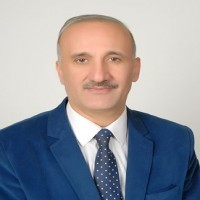

د. علي محمد علي غريب
Managing Editor













